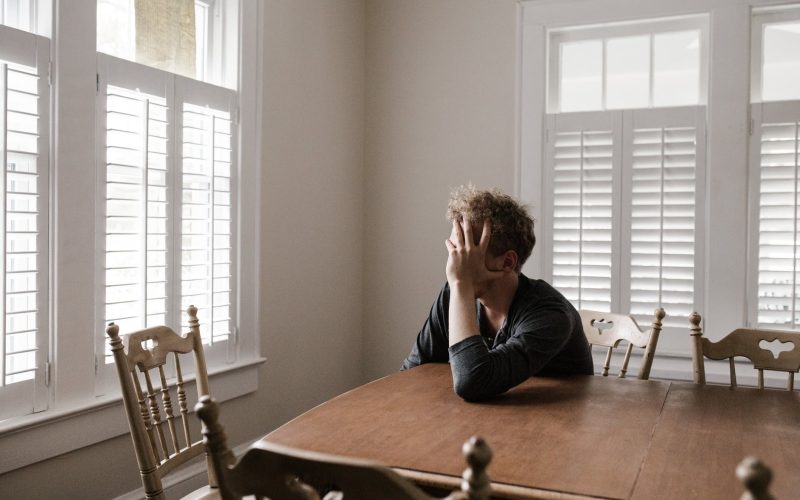Loneliness is a powerful, complicated emotional and mental phenomenon that has to do with feeling alone or abandoned.
We have all experienced some sort of abandonment or loneliness at some point in our lives, maybe only for a short time, but we can all recall the painful and scary feelings that come along with it.
Whenever we reminisce about this period in our lives and recall that feeling, we feel a twinge of distress, like we’re alone, and this is what we experience as loneliness.
Coping with loneliness during the coronavirus pandemic has been a major problem that a lot of people have to deal with. A lot of people are self-isolating because they’ve caught the virus, others are self-isolating for some other reasons, mostly because many parts of the world have chosen to shut down civilization and socialization for the time being.
You could be under quarantine or self-isolation due to suspected exposure, or you could be staying home to help prevent the spread of the virus. Howbeit, the feelings of loneliness will most likely follow, and you may find yourself unprepared for it.
While those with chronic illnesses may already be accustomed to facing long periods alone at home, most of us are used to going out and socializing every day. Having to stop all of that suddenly may be jarring, and it will take so much to cope with the new development.
Dealing With Loneliness
In 2017, a systematic review conducted on 40 studies between 1950 and 2016, published in a journal called Public Health, found a significant association between social isolation/loneliness and poorer mental health.
Hence, taking care of your mental health during long periods of decreased social interactions is of paramount importance.
It’s quite reasonable for most people to feel stressed after long periods of staying indoors and interacting less with people. That, when added to the stress of worrying about catching the virus, can be detrimental to their mental health.
These factors could increase their chances of experiencing or developing a mental health issue, like anxiety or depression
How to cope with feelings of loneliness
One question that so many will be asking is, “what’s the best way to get through this isolation period?”
There are many things you can do to ensure your well-being, stable mental health, and a healthy state of mind. There are many ways to distract yourself, keep yourself busy, or connect with others, despite the current circumstances.
Below are some of the ways you can manage your feelings of loneliness during these times.
Search for ways to distract yourself
Finding a distraction will help you avoid thinking and worrying about what should be and shouldn’t be. You can start by taking on little projects, completing an online course, or finding other forms of distraction. This can help to keep your mood level, and you’ll be too busy to feel lonely.
Stay connected to family and friends.
Staying connected to people in non-traditional ways (through phone calls, social media, texting e.t.c) can also help you to feel less isolated. Keeping in touch with loved ones helps eradicate the feeling of loneliness.
Older people aged 65+ are most likely to self isolate due to fear of infection, but most of them may have little or no support in place. So they may be particularly susceptible to loneliness during this isolation period.
Older adults are advised to keep in touch with relatives regularly, through phone calls or video calls, to enable them to know how you’re faring and if you require any assistance. Ask family members for help when you need it and be specific about how they can be of help.
Limit your media consumption to an extent
The coronavirus pandemic will very much be the only thing that is being reported on the news and most social media platforms.
So watching too much news, reading too many articles, and consuming too much news content may not be good for your mental health, and it can be overwhelming. You could decide to see the news just once or twice a day.
You might also choose to limit your time on social media if it seems like everyone is talking about the virus.
Make sure the news and all of the information you’re getting is coming from reliable sources.
Connect with people on social media
You can also eradicate loneliness by participating in online exchanges with different people around the world.
Social media makes it easy to connect with people. These people do not necessarily have to be your close friends. You could be chatting with random people, and end up connecting with people who share the same interests with you or who have gone through similar experiences.
Below are some examples of online connections that you can make.
- You can also join and participate in Facebook and WhatsApp groups about topics that interest you.
- You can also sign up for online platforms that are about your hobbies and interests.
- you can join and play MMOs and MMORPGs like Final Fantasy and Warcraft
See your favorite Movies and TV series
You can choose to see a comedy themed movie, as this will entertain you and help to ease your stress. You can also watch a television series or watch documentaries on topics that are of interest to you. Watch your favorite blockbuster movies to keep you entertained and happy.
Listen to your favorite songs or try to create your own music
Download your favorite songs but old and current and create a playlist with all of the songs. Sing along as you listen, or try to create your own sound.
You can also take the time to learn to play a musical instrument.
Try working out
We focus most of our energy on our mental health that we sometimes forget our physical health, yet, both our physical and mental health are delicately intertwined.
If you spend weeks or months in isolation without getting any exercise, this will be detrimental to your mental health as it affects your ability to cope.
If you have no idea how to start or what to start with, you can begin by doing a couple of sit-ups or push-ups. You can also practice yoga or walking meditation or any other form of meditation. It will not only benefit your physical health, but it can also keep your mind stable and focused. You can also go for a walk around your neighborhood. Or, if you are concerned about going outside, you can walk around your compound.
Do something that gives you fulfillment
One major contributor to feelings of loneliness, anxiety, and depression is a loss of sense of meaning and purpose. If you find that you feel as though you are losing your sense of purpose and meaning, then you have to start doing something that will bring back the feeling.
We all want to feel that our life has meaning and importance; this is why we must incorporate meaningful activities into our everyday day life. Try doing something useful every day; even if it’s only for a short time, this will give you a sense of purpose and identity.
In most cases, our jobs are what gives us a sense of purpose; in other cases, it’s our careers. Now seeing as these things may have been put on hold, you may be needing to identify with something else that gives you fulfillment, and you will need to discover what it is.
If you have difficulties identifying those things that create meaning to your life and bring you fulfillment, then you can start by registering for an online course, embarking on a study or research project, or searching for freelance jobs online.
Make plans for the future.
It might seem or feel as though this isolation and loneliness will last forever, but there will come a time when you will go back to your normal life and usual routines, so you have to make sure that when life goes back to normal, you’re getting back better than the way you used to be.
Making plans for the future is another way to keep your mind busy with positive thoughts, so you don’t feel alone. You can do things that help to shift your focus to the future.
- You can try making a list of all the things you want to do after the isolation period is over, take your time to plan them, and make sure you’re happy doing so.
- You can plan a fun event for friends and family to get together right after you are out of isolation.
- You can take the time to set a list of achievable goals for yourself.
Final note
While isolated during this period, if you find yourself feeling depressed, anxious, or lonely and are unable to pull yourself out of these feelings, it is vital that you reach out for help. Try talking to someone within your reach, or consider calling an online therapy service or a crisis line.






